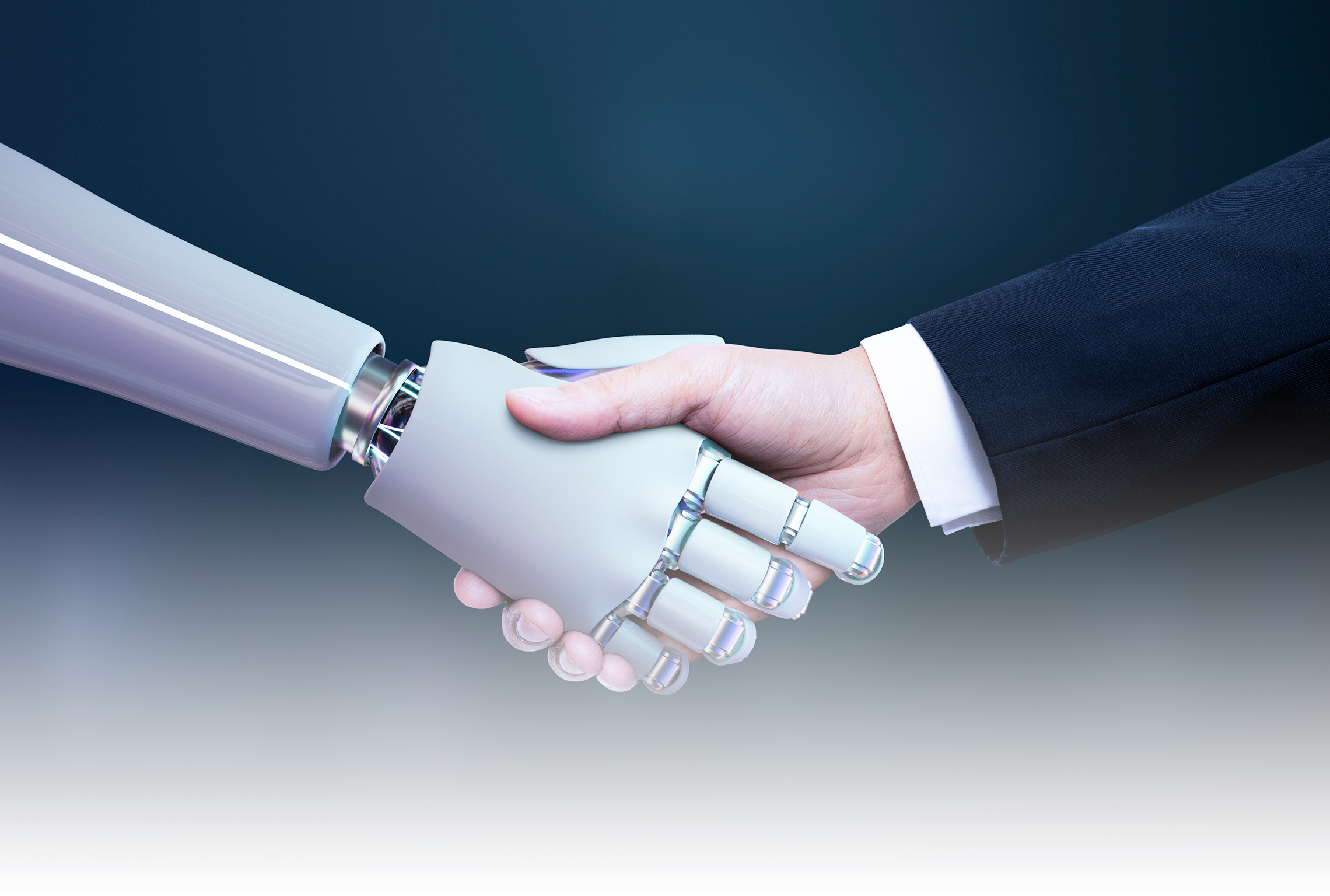What is the Impact of Artificial Intelligence for Recruitment?
AI is shaping the role of recruiters by automating various aspects of recruitment and enabling better hiring choices and streamlined operations.
Recruitment
May 19, 2023
9 minutes read

“”
AI is helping shape automated recruitment, from sourcing and screening candidates to scheduling interviews and providing personalized candidate experiences.
Artificial intelligence for recruitment has been a fast-approaching trend in the waking of the Artificial Intelligence Revolution We have been witnessing the emergence of AI for everyday use in recent times, and much like any other business function, recruitment processes are being submitted to new recruiting technologies, specifically AI trends.
Automated recruitment is increasing popularity among recruiters and hiring managers and is proving to be an excellent approach to streamlining hiring operations as the job market continues to evolve.
What is AI for recruitment?
AI for recruitment is a fairly simple term to understand, but what it refers to in its core is the use of artificial intelligence to automate time-consuming, repetitive tasks usually done by recruiter, while not disregarding personalization and data insights throughout the hiring process.
AI can streamline and automate various aspects of the recruitment process, from sourcing and screening candidates to scheduling interviews and providing personalized candidate experiences, through automated recruitment.
There are several recruitment technologies and tools that can help deliver the right jobs to the right talent, the right talent to the right recruiters, and ultimately, build the right teams for a company. AI recruitment software can help leverage the wealth of data in the applicant tracking system (ATS) to generate valuable insights about the talent pool before being assessed by a recruiter.
What are the benefits of AI for recruitment?
Artificial Intelligence offers numerous benefits during the recruitment process. Here are some key advantages of AI in recruitment:
Enhanced Efficiency:
One of the purposes of artificial intelligence for recruitment is to automate various time-consuming and repetitive tasks in the recruitment process. This might entail resume screening, scheduling interviews and assessments, or helping take noted during the interview. This saves recruiters valuable time and enables them to focus on more strategic and human-centric activities.
Improved Candidate Screening:
AI-powered algorithms can analyze texts quickly. By applying natural language processing (NLP) techniques, AI systems can extract relevant information, assess candidate qualifications, and identify potential matches for job vacancies.
Bias Reduction:
Consciously or unconsciously, every human being is prone to displaying some biases. AI algorithms can be designed to minimize bias and focus solely on candidate qualifications and skills, disregarding personal characteristics such as gender, race, or age.
Widen the Candidate Pool:
For recruiters, especially in competitive areas, such as IT talent acquisition, it can be hard to reach a wide enough audience of candidates to fulfill a job position. AI can help leverage online platforms to identify and engage with a broader pool of potential candidates. It can also recommend passive candidates who may not be actively looking for opportunities but possess the desired skills and qualifications.
Improved Candidate Experience:
Automated recruitment foresees tools and technologies that are designed for candidate experience. Chatbots and virtual assistants can provide instant responses to candidate queries, schedule interviews, and provide timely updates throughout the recruitment process. This improves communication and creates a positive candidate experience, fostering a favorable employer branding reputation.
Data-driven Decision Making:
AI systems collect and analyze vast amounts of recruitment data, enabling recruiters to make data-driven decisions. By examining historical patterns and success metrics, AI can help identify the most effective recruitment strategies, sources, and techniques for attracting and selecting top talent.
Time and Cost Savings:
AI streamlines various recruitment activities, leading to significant time and cost savings. Automated recruitment accelerates the hiring process by allowing organizations to fill vacancies more quickly and reduce overall recruitment expenses.
How can AI improve candidate experience?
Artificial intelligence for recruitment can improve candidate experience in several ways. AI can provide personalized recruitment experiences for candidates, which can help attract and retain top talent.
Automating various aspects of the recruitment process can help eliminate bias in the recruitment process, which can improve the fairness of the process for all candidates. By using AI-powered recruitment solutions, recruiters can collect data applicant data by matching their data inputs with the job’s requirements, which can help to find the best match for the job.
AI can also help to keep qualified candidates engaged by offering constant contact, facilitating communication and interaction between company and candidate. Overall, AI can help by providing a more efficient, personalized, and fair recruitment process, while not disregarding the human-centric factor guaranteed by recruiters.
How is AI shaping the role of recruiters?
AI is helping shape automated recruitment, from sourcing and screening candidates to scheduling interviews and providing personalized candidate experiences.
By using AI-powered recruitment solutions, recruiters can focus on finding the very best people for each open role. AI can also help to reduce the time and cost associated with traditional recruiting methods, which can make the recruitment process more efficient and less frustrating for recruiters. Overall, AI is transforming the role of recruiters by enabling them to make better hiring choices and streamline operations in the recruitment process.
Using artificial intelligence for recruitment – implementation guide
Implementing AI in your recruitment strategy involves several key steps. Here’s a general roadmap to help you get started:
Define Objectives:
Determine recruitment goals and assess what can be improved by AI.
Identify Suitable AI Tools or Solutions:
Research and evaluate AI tools or software available in the market that align with your recruitment objectives.
Data Collection and Preparation:
Ensure you have access to relevant data for training AI algorithms. Your data-set should be insightful, varying on the job-postings you have declared.
Test and Refine:
Conduct pilot tests or trials to evaluate the effectiveness and efficiency of the AI solution before putting it to use. Compare it with the performance of your recruiters and assess points of improvement.
Rollout and Monitor:
Once you are satisfied with the performance, deploy the AI solution across your recruitment process. It is important for these technologies to be monitored and evaluated regularly.
Human-AI Collaboration:
Encourage recruiters to work alongside AI systems, leveraging the insights and recommendations provided by the AI tools while incorporating their expertise and judgment.
Continuous Learning and Improvement:
Stay updated with advancements in AI technology and continuously explore new possibilities for enhancing your recruitment strategy.
Ethical Considerations:
Above all, when using artificial intelligence to perform otherwise human-centric tasks, it is important to maintain a strong focus on ethics and fairness throughout the AI implementation. Regularly evaluate the AI system for potential biases and take corrective measures as needed. Ensure compliance with data privacy regulations and maintain transparency with candidates about the use of AI in the recruitment process.
Key-takeways
AI for recruitment refers to the use of artificial intelligence to automate time-consuming tasks in the hiring process while incorporating personalization and data insights.
Benefits of AI for recruitment include enhanced efficiency, improved candidate screening, bias reduction, widening the candidate pool, improved candidate experience, data-driven decision making, and time and cost savings.
AI can improve candidate experience by providing personalized recruitment experiences, eliminating bias, and keeping qualified candidates engaged through constant communication.
AI is shaping the role of recruiters by automating various aspects of recruitment and enabling better hiring choices and streamlined operations.
Implementing AI in recruitment involves defining objectives, identifying suitable AI tools or solutions, collecting and preparing relevant data, testing and refining the AI solution, rolling out and monitoring its performance, fostering human-AI collaboration, continuous learning and improvement, and considering ethical implications.
It is important to maintain ethics and fairness in AI implementation, regularly evaluate for biases, comply with data privacy regulations, and be transparent with candidates about the use of AI in the recruitment process.







